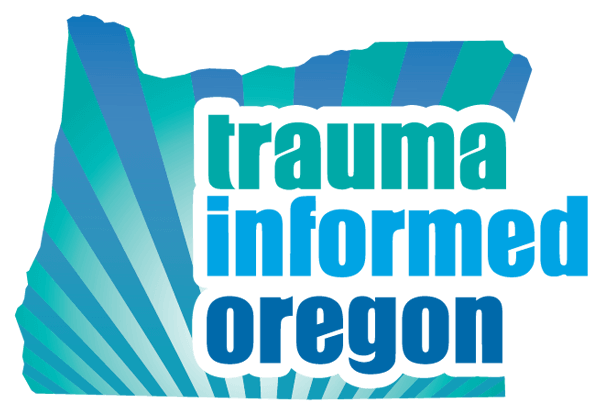Blog
 Stop Trying to “Build Trust”—Grow It
Stop Trying to “Build Trust”—Grow It

From Dr. Kendra Coates
“I trust you.” Do you remember the first time a colleague said that to you? How did you feel? Surprised? Flattered? Connected? Valued? Supported? Grateful? Trusted? Do you remember the first time you felt or shared that trust sentiment with a colleague?
“Building and maintaining trust” is one of the most named values and principles for organizations. But what do we mean by “building and maintaining trust”? Let’s unpack it a bit. First, using the verb “build” implies we can use a certain set of “tools” with certain “building materials” to construct this thing called trust. We then fall short or struggle to “build trust” because we are applying technical solutions and processes to human-centered qualities like trust. Trust does not develop in a linear, step-by-step fashion. When we approach human-centered elements with object-centered approaches we often in the process create the opposite of what we intended: disconnection and mistrust.
So, what do I try to do?
First, I don’t try to build trust. I try to create the space, conditions, and opportunities for myself to show up as Kendra, not my title, not my “professional role” but me as me. Sounds straightforward but it’s actually very challenging for us women in professional settings especially within my field of education because there are so many expectations, rules, and norms for how we “should behave” at work. I remind myself that these “professional rules and norms” were not written with me in mind. In this sense it doesn’t make sense for me to follow them. When I do “try to follow them,” I feel out of alignment with my values and thus start feeling the tension and friction. So yes, I “break the old rules.”
How?
I try to meet with colleagues in spaces and places beyond our traditional professional parameters like cafes, restaurants, parks, and bookstores. For all of us now this means connecting via Zoom and Google Meet. In the future we will be able to connect with each other face to face in all the wonderful places we enjoy together.
Why meet in spaces and places beyond our traditional professional parameters? Because when we grow something we pay attention to the health, climate, and vitality of the soil—the very space and place where we intend to grow something. Sure, we can ignore the health of the soil, buy some bloomed flowers at Home Depot, and then plant them to make it look like we have a lovely garden but we know this is temporary and, in many ways, not real. These flowers are eventually taken over by the weeds or destroyed at the root because of the toxicity of the soil.
We can apply this metaphor to growing trust. Growing trust means we learn about, study, and pay attention to the conditions (soil) that grow, nurture, and cultivate trust. This includes paying attention to how our physical environments impact us. Physical environments represent cultural norms, values, beliefs, behaviors, policies, and practices. Physical environments send us messages and trigger our thoughts, emotions, and thus our reactions, responses, and interactions. For example, our environments can send us limiting messages and trigger feelings of disconnection, mistrust, competition, and demoralization.
When I connect with colleagues we talk about these conditions (name and claim) and other human-centered elements of our professional lives, how we can show up as our whole selves and how we can integrate our personal and professional identities. We use profanity. We talk candidly about our challenges, mistakes, problems, hopes, goals, and dreams. We talk like humans minus all the professional layers. The real conversations and connections that grow, nurture, and cultivate trust actually happen most often outside traditional professional parameters of time and space: 8-4 or 9-5, classroom and meeting room walls, and agendas and schedules.
Trust isn’t built, it grows and changes over time moment by moment, one human-to-human interaction at a time.
_________________________________________________________
Dr. Kendra Coates is a steadfast believer in accessing and celebrating our unlimited potential (UP).
She is a learner, educator, mom, author, consultant, certified professional coach, speaker, and entrepreneur. She is the author of Growing Early Mindsets™ (GEM™), a new literacy-based teaching and learning framework and curriculum from Mindset Works, the global leader in growth mindset. She is also author of The Girls’ Guide to Growth Mindset: A Can-Do Approach to Building Confidence, Courage, and Grit.
Kendra has over twenty years of PreK-12 teaching and leadership experience in a variety of settings including early childhood, after school, abroad, AmeriCorps, special education and intervention, and PreK-12 leadership. She currently serves as Regional Director of P-3rd Education for Central Oregon. She also travels the United States sharing the power and potential of neuroscience, growth mindset, social and emotional learning (SEL), and mindfulness to whomever will listen and even to those who may not want to listen yet.
In addition, she is an adjunct professor and guest lecturer/speaker and holds a B.A in political science, a M.A.T in Special Education, a M.S. in Curriculum and Instruction, and a D.Ed. in Educational Methodology, Policy, and Leadership. She holds educational licenses in literacy, PreK–12 special education, early childhood and elementary education, and school administration in the state of Oregon.
